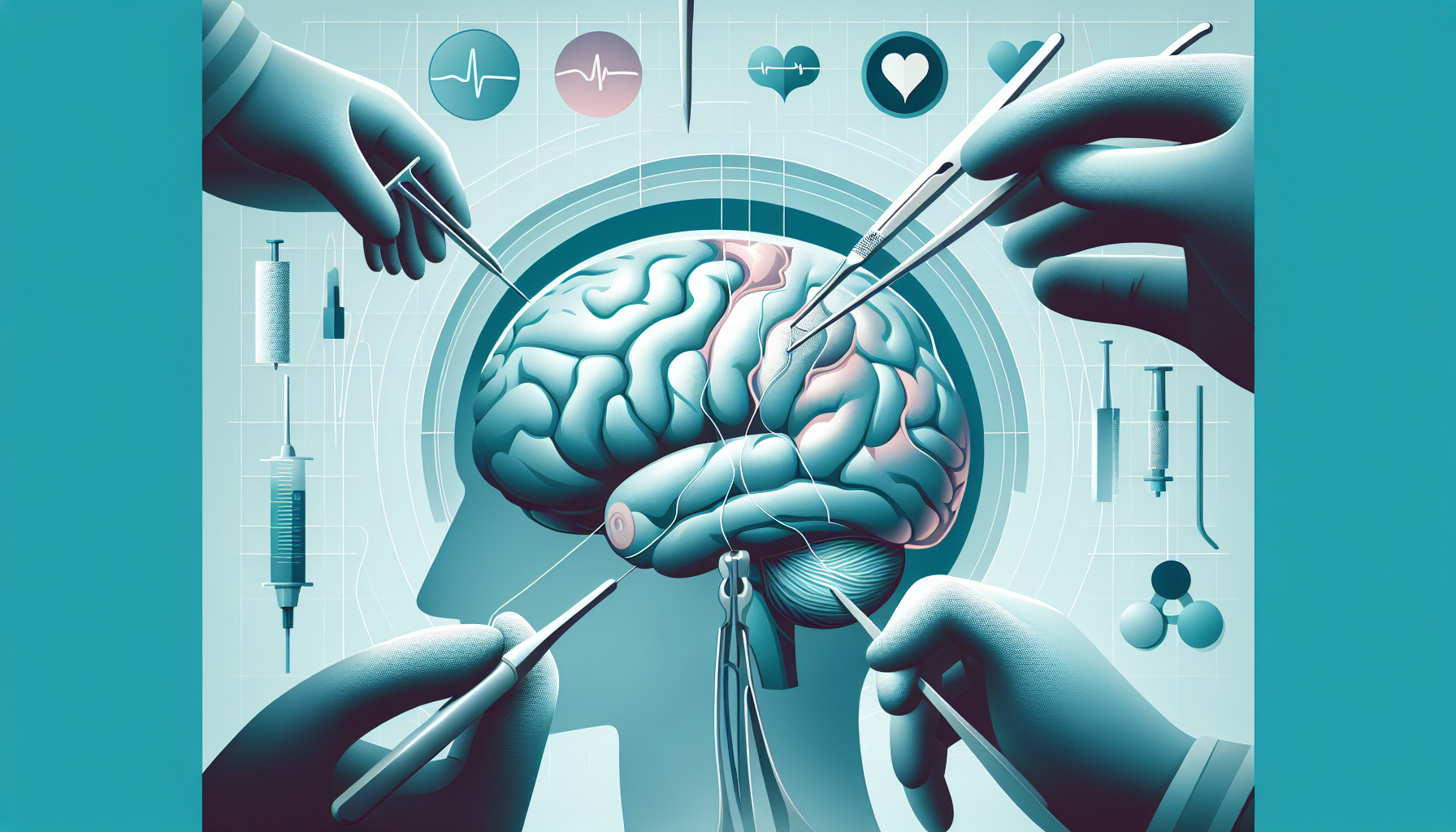Our Summary
This research paper is about the effects of certain types of brain surgery on patients’ oral health and quality of life. The surgeries in question often involve manipulating a muscle in the temple area, and many patients experience problems such as pain, muscle shrinkage, difficulty opening their mouth, and issues with chewing after the operation.
The researchers used a well-established questionnaire to assess oral health and quality of life in 60 patients both before and after they had one of these surgeries. They found that patients’ scores on the questionnaire (which reflect their oral health-related quality of life) were significantly worse three months after surgery, but improved somewhat by 15 months post-surgery, though not back to pre-surgery levels.
The study found that these types of brain surgery can have a lasting negative impact on oral health and quality of life. The researchers suggest future studies to investigate if therapies like physical therapy or speech therapy could help improve these issues after surgery.
FAQs
- What are some common oral health problems experienced by patients after brain surgery?
- How does brain surgery impact patients’ quality of life related to oral health?
- Could therapies like physical or speech therapy potentially help to improve oral health issues post brain surgery?
Doctor’s Tip
A helpful tip a doctor might give a patient about craniotomy is to practice good oral hygiene before and after surgery to reduce the risk of oral health complications. This includes brushing and flossing regularly, using a soft-bristled toothbrush, and avoiding harsh mouthwashes that could irritate the mouth. Additionally, patients should be aware of any changes in their oral health and report them to their healthcare provider promptly.
Suitable For
Patients who are typically recommended for craniotomy include those with brain tumors, blood vessel abnormalities in the brain, traumatic brain injuries, infections in the brain, and epilepsy that cannot be controlled with medication. Additionally, patients with certain types of neurological conditions or disorders, such as Parkinson’s disease or trigeminal neuralgia, may also be recommended for craniotomy. The decision to undergo a craniotomy is typically made by a neurosurgeon after careful consideration of the patient’s medical history, symptoms, and overall health.
Timeline
Before craniotomy:
- Patient meets with neurosurgeon to discuss the need for surgery and potential risks and benefits
- Patient undergoes pre-operative testing, such as blood work, imaging scans, and neurological exams
- Patient may be instructed to stop taking certain medications or to follow a special diet in preparation for surgery
- On the day of surgery, patient is admitted to the hospital and undergoes anesthesia before the craniotomy is performed
After craniotomy:
- Patient wakes up in the recovery room and may experience pain, nausea, and confusion
- Patient is monitored closely for any signs of complications, such as bleeding or infection
- Patient may spend several days in the hospital recovering before being discharged
- Patient may experience side effects such as headaches, weakness, or changes in speech or vision
- Patient may need to follow up with their neurosurgeon for post-operative care and monitoring
- Over time, patient may experience improvements in their symptoms and quality of life, but some issues may persist long-term
Overall, the experience of undergoing a craniotomy can be challenging and involve a significant recovery process. It is important for patients to work closely with their healthcare team to address any concerns and to optimize their recovery and long-term outcomes.
What to Ask Your Doctor
- What specific type of craniotomy procedure will I be undergoing and what are the potential risks and complications associated with it?
- How will this surgery affect my oral health, specifically in terms of muscle function in the face and jaw?
- What can I expect in terms of pain and discomfort following the surgery, and what pain management options will be available to me?
- Will I require any special dietary restrictions or modifications post-surgery, and if so, for how long?
- How long is the typical recovery period for this type of surgery, and what kind of follow-up care will I need?
- Are there any specific exercises or therapies that can help improve my oral health and quality of life after the surgery?
- What signs or symptoms should I watch out for that may indicate complications or issues with my oral health post-surgery?
- Will I need to see a specialist, such as a speech therapist or physical therapist, to address any difficulties with chewing, speaking, or muscle function after the surgery?
- How often will I need to follow up with you or other healthcare providers to monitor my oral health and overall recovery progress?
- Are there any long-term effects on my oral health that I should be aware of following this surgery?
Reference
Authors: Gierthmuehlen M, Jarc N, Plachta DTT, Schmoor C, Scheiwe C, Gierthmuehlen PC. Journal: Acta Neurochir (Wien). 2022 May;164(5):1347-1355. doi: 10.1007/s00701-021-05020-w. Epub 2021 Oct 19. PMID: 34668078
